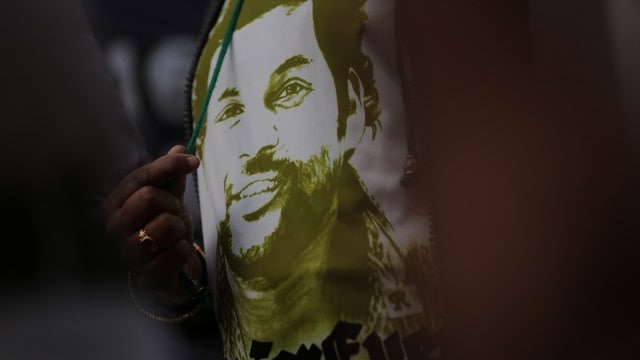
In the most massive of contradictions, we have non-Dalits arguing that Rohith Vemula is not Dalit while Dalits claim him as their own. Never has a person born into a certain caste been able to claim to belong to another without that caste group accepting the person. For example, let us say I am born into the weaver caste and wish to be a Brahmin because of the social, political and ritualistic privileges it accords. Towards this, I claim to be Brahmin in the village and everywhere else. Does that make me one? Will the Brahmins in the village consider me one of them even as I do everything they do, live my life as they live, and follow their rituals and customs? Can I formally, following all conventions, seek a partner in marriage from the Brahmins in the village? No.
Although castes and caste relationships have transformed to some extent over the years, this claiming of a caste into which one is not born has never occurred. Never has a non-Brahmin been accepted as a Brahmin by the Brahmins, a non-Kayastha been embraced as their own by Kayasthas, nor a non-Jat by Jats — the list can go on. So, I remain a weaver.
One of the most rigid rules of the caste system is that no individual can change their caste in their lifetime. Within the narrow frames of the caste system, the only possibility is being an outcast, abandoned by one’s caste. This is why, as B R Ambedkar argued, conversion into Hinduism is never a possibility — because you cannot convert to a particular caste.
Today, almost all Dalit students across India, Dalit and Dalit-Bahujan associations, groups, activists, most Dalit politicians, and individuals/organisations from across the caste/communitarian divide who believe in an Ambedkarite, egalitarian, casteless society have claimed Rohith to be a Dalit. Most importantly, Dalits, from the Mala caste in Guntur, Andhra Pradesh, where Rohith has his origins, have overwhelmingly claimed Rohith as one of their own, a Mala by caste and by life, from his mother.
On the other hand, the central government, certain ministers and the police have asserted that Rohith Vemula is not a Dalit. While the community has embraced Rohith, one fails to understand the police and government’s stake in proving that he is not. They have claimed that Rohith Vemula is not Dalit and that he and other political parties, including students involved in the movement for justice for Rohith Vemula, had vested interests in claiming the Dalit identity for him.
Meanwhile, many student leaders of ABVP who were implicated in Rohith’s case have gone on to academic positions. But students belonging to the Ambedkar Students’ Association (ASA) and other organisations involved in the movement for justice for Rohith Vemula have now finished their PhDs and are largely unemployed. It has been eight years, they are nearing 40 and without a job. Some are farming, others are in contract jobs and some still are nowhere.
In addition, they are made to visit the court at least once a month for hearings in cases filed against them — not to mention the difficulty with which expenses for these legal services are met. What vested interest can these Dalit students — first-generation learners from extremely poor backgrounds — possibly have against the most powerful in the country? Have such students ever been able to fight and win against a government that beckons every power and state machinery at its service?
The reason this issue is raked up is because the Telangana police submitted its closure report on May 3, 2024, on the case filed by Dalit students against the university administrative officials, Union ministers, an MLC belonging to BJP and one ABVP leader. The report mentions a “lack of evidence” in the case. But through reading the report and looking at the list of witnesses, one thing sticks out.
In the list of witnesses that the police spoke to in and around Guntur, those from the Vaddera caste group stand out. This is because, other than Rohith’s mother Radhika, his brother Raja and friend Riaz, there is not one other Mala person the police have sought witness from in Guntur.
That Rohith’s biological father belonged to the Vaddera caste, an OBC and was separated from his mother, who was born Mala and adopted by Anjani Devi, a Vaddera, is well documented. Radhika Vemula was born a Mala, lived a Mala life before and after separation from her husband, and raised her kids as Malas among other Malas. All this has conveniently been set aside by the state and police.
Despite Malas claiming Rohith to be a Mala, the Supreme Court’s judgment about children being able to claim a mother’s caste and all evidence to the contrary, Rohith’s caste is determined by his father’s and not his mother’s — a blot on our still casteist-patriarchal society. Sadly, this renewed questioning of Rohith’s caste has ended up questioning Rohith’s dignity and integrity in death, for which he fought when he was alive.
The writer is a professor at the Centre for Comparative Literature, University of Hyderabad
© The Indian Express Pvt Ltd
First uploaded on: 21-05-2024 at 11:32 IST


